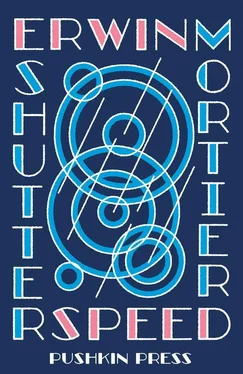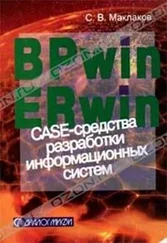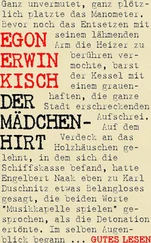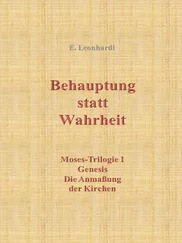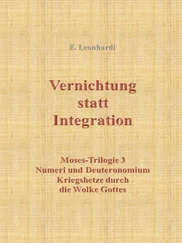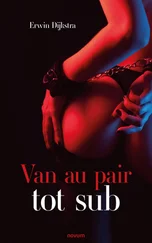Why is it always the letters people burn when they want to have a go at rewriting — or editing — their history? Why is it so seldom the photos that get thrown away? The festive gathering, the outings, the everyday snapshots, all those slivers of light rescued from oblivion by the dry click of a camera. All those images of people, young and old, fresh-faced or careworn, all the commotion, the laughter, the long faces, the dreamy looks, the vacant stares — why are they perceived to be less damning than words inked on paper?
Sometimes I wish the fabric of time were light and transparent, that it came in sheets that I could roll up at will and tuck away out of sight behind a pile of books, only to be taken out when I feel like it. But what the past does to me is nail the years to my ribs so that they clad and cage me in a vicarious body, making my father’s shadow loom large each time I furrow my brow, and my mother beat her arms like wings and hop in the air at each peal of my laughter, in which I can hear the echo of hers.
Who knows how many splinters of individuals whose names I’ve never heard of reside within my body? How many people am I unconsciously imitating in the way I sit on a chair, lift my glass, try to hide my impatience, snore in my sleep, press my lips together when I think, or put my hand to my chest when I listen? I see my great-grandfather, who died before I was born, making exactly the same gesture.
I did not set foot in my old room, although the door was wide open — Aunt had left it open for years to prevent things getting musty inside. Everything looked the same as in the beginning: the bed, the writing table, the grass-green bedspread, although the photo of Kennedy, still up on the mantelpiece, was very faded. There was no trace of the room having been occupied by me. If I had looked in the bottom of the wardrobe, I suppose I might have found the binoculars I used to point at the full moon in the hope of identifying the Sea of Tranquillity. So much the better for the antique dealer.
One day, when Uncle was still alive but already having difficulty walking, Aunt asked if I would fancy accompanying her to a film evening in the village. I did not dare say no.
The event was held in the parish hall. A crowd of pensioners milled about the projector. Aunt Laura beamed left and right, saying, ‘Oh yes indeed, this is Joris — you know, George’s boy.’ Someone remarked that I was even taller than my father at my age.
‘Stuyvenberghe of Old’ was the title of the first film. One of Mr Snellaert’s sons was now in charge, the master having moved to a nursing home after a stroke. The father’s hobby had evidently been passed on to the son.
He had made a compilation of the material his father had shot in the old days, although some sequences must have been even older. Films in which blobs of white or black appeared periodically beside the flying buttresses of the church, then still in possession of the pointed spire that was blown up by the Germans in the war. Jerky images of children trudging down the cobbled high street in wooden clogs lined with straw for warmth, dogcarts laden with milk churns, smiths at their anvils, country fairs, pilgrimages, and then all at once, in the rich Technicolor of the fifties, wheatfields with peasants tying the ears into sheaves and bundling the hay. Silent films, to which the master’s son had added a soundtrack of schmaltzy German songs.
Next came ‘Panoramic View from the Dike’. Violin glissandos skimmed the surface of the canal. The master had evidently turned in a full circle, sweeping the lens across fields, meadows, banks of brushwood and lines of poplars, then across the water, the village beyond, the tower, and yet more fields, as if to say: all this is about to get the chop.
I used to believe my father persuaded my mother to take so many photos of him and me together as a way of forestalling his misfortune, perhaps because he sensed that his days on this sublunary stage were numbered and that he needed to leave evidence for me when I grew up. The pictures he took of me, in my cradle, with my building blocks, in the back garden, under the apple trees, gave me a sense of his already being in some distant future, peering down at me through a chink in his afterlife.
I think he took to drink for the promise it held of other dimensions besides the four he already knew, for the euphoria of escape from the here and now, the straitjacket of stiffening joints, hardening arteries and diminishing opportunities.
During that film evening with Aunt I recall feeling embarrassed by her utter absorption in the show, which caused her to hum along with the soundtrack and sway her head from side to side in blissful affirmation, especially when the tree-lined alleyway to the manor came into view. I never told her what the girl had said about my father that afternoon at Hélène’s coffee party.
I did drop some hints to my mother. On one of these occasions she burst out with ‘He was on the bottle even before we were married … How can you think I had an easy time? I was barely out of my teens, for Christ’s sake.’
I needed to grow quite a bit older before I could bring myself to take her in my arms, and even then I didn’t mean it, I must confess, but on the other hand perhaps I meant it more than most. My own private history has its share of dark passages, which I tend to skip when browsing in the past, although my reaction to other people’s obfuscations has always been to demand explanations, clarity, some kind of holdfast, and then to break with them in despair — and insist they return all my letters.
*
Aunt gave me a nudge in the ribs. ‘Look, Joris!’ she cried, overcome with delight.
I could see the path leading to the church and the leafy crowns of the lindens on either side. An early Sunday morning in summer. The door is open, the service has just ended. The first worshippers to depart appear at the threshold, farmers donning their caps and lingering for a chat. Hands are shaken, more people emerge from the church, the forecourt fills.
Aunt comes into view, wearing her Sunday coat. She stops to talk to a few women I don’t recognise. Hélène Vuylsteke makes her appearance on the steps, holding the girl by the hand. Dispensing polite greetings left and right, they step briskly towards the high street, where their chauffeur is waiting at the kerb. Before getting into the car Hélène twists round to wave at Miss van Vooren, who has just emerged from the church beside the priest, clasping her missal with both hands.
It must have been during that final summer, some time after the fair, mid-July perhaps. The ruddy glow of the brick boundary wall, the colours of gravestones, linden leaves, garments, hair, hats — they all look so much richer than the way I remember them that summer.
But it was none of these things that moved Aunt to nudge me in the ribs. Her excitement was caused by a figure suddenly dashing across the screen from left to right, and then reappearing in a flash, like a swallow swooping over a country lane.
I had not noticed it was me until Aunt cried ‘Look!’ for the second time. I am chasing my classmates, or they are chasing me. I snatch caps off boys’ heads, dodge their grasping hands, stumble, regain my balance, swerve around groups of chatting villagers, vanish. A second or two later I am racing over the cobbles in the opposite direction.
Uncle tries to slow me down, I see him remonstrating with me, but I don’t seem able to stop. I fling a cap in the air, evidently not mine because a boy with ginger hair lunges forward to catch it, but I jump and swipe it away. I see myself yelling voicelessly. I do not remember the words I shouted any more than I remember the happy, high-spirited boy leaping nimbly over cobbles and gravestones with his shirt tails flapping out of his trousers.
Читать дальше
